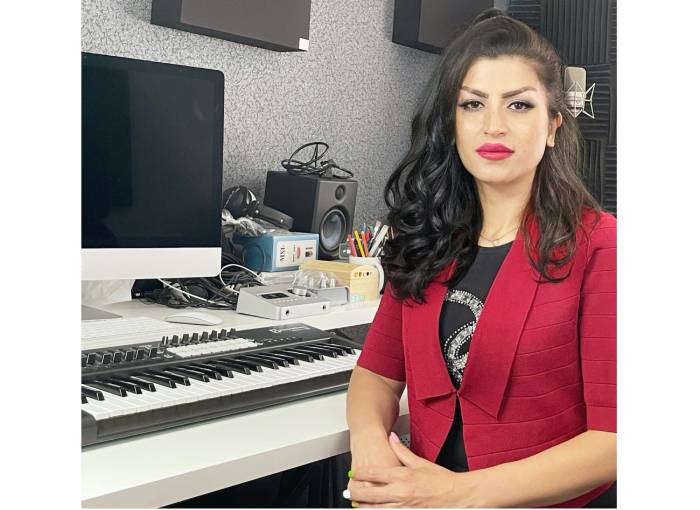
Today, we invited the Iranian musician Ms. Mahtab Arian to give an explanation about the origins of Iranian music
- Music
- May 30, 2022
Kurdistan should be considered the cradle of Iranian music, because Kurdish music has a complete relationship with the ancient music of Iran. Among the unique types of Kurdish music, “Hoora” and “Shamshal” are the oldest. Some types of music date back to more than a thousand years and even before the advent of Islam in Iran.
In terms of antiquity, Kurdish music can be divided into two groups:
Ancient music, known as horeh, morah, loreh, and siachmaneh (black-eyed), chupi, and traditional audio-sounding melodies, is generally based on ten-syllable poems without additional words. The ritual type of this music is considered lamentable and its description is real and its lyrical type is allowed.
The second group includes songs such as Samad Lacheki, Maqam Allah Veisi, Maqam Baghi Alley, Samad Mesgari and melodic songs that are based on virtual and sometimes prose poems.
Beat reading:
In Kurdistan, there is another type of music called “bitkhani” which is probably synonymous with “gatakhani” or “gasakhani”. Beat reading is based on a completely simple song without observing weight, rhyme and order, which is performed in expressing the war of religious, religious and national commanders and elders.
Basically, music in Kurdistan is performed in several parts:
Official Music:
Kurdish officials include Al-Awisi, Hiran, and Qatar. In these positions, musicians play a number of corners of Iranian national music that are manifested in the instruments and positions of national music, in a special style.
Part of the music of the ancient Iranian authority has been preserved in this land. The authorities of Kurdish music are of great value in terms of the cultural connection of the Kurds with other Iranian ethnic groups and also having the ancient effects of Iranian music.
Vocal Music:
This music is performed in two styles and methods called Hoora and Siachmaneh. It seems that the word Hoora is derived from “Ahura” or “Ahura”. “Hoorah” is an ancient song in some of which, narrations related to the ancient Iranian religions and the sanctity of “Agar” (fire) can be found. Its lyrics are virtual and in this respect it is similar to Avesta.
In the past, the Avesta was sung in a melodious tone. In this way, it can be said that Horakhani was the same as “Ahurakhani” which was called “Server of the Wise”.
Religious music: Religious music is performed in two ways:
Mourning Music:
Also called Chamri, it is a ceremony performed in mourning for greatness, heroism or leadership. The manner of performing the ceremony and its grandeur are reminiscent of Siavash’s mourning.
Ramadan song:
(Dawn and wake up) The special melody of Ramadan, which is performed at dawn and dusk to inform the people, has two melodies and rhythms.